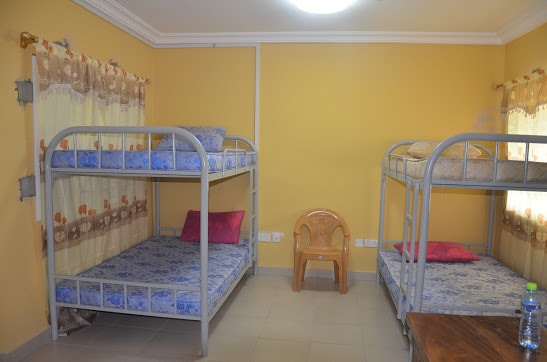|
Getting your Trinity Audio player ready...
|
The cost of accommodation for university students in Ghana has skyrocketed to distressing levels, creating a severe strain on students and their families. Shockingly, in many cases, the cost of staying in a hostel or homstel (shared private residences) far exceeds tuition fees—sometimes tripling them. This disparity is not only alarming but indicative of a systemic failure to prioritize student welfare in higher education.
University accommodations in Ghana often operate on an “in-out-out-in” basis, where only first-year and select final-year students are granted access to school-provided housing. The majority of students, especially in their second and third years, are forced to seek accommodation outside campus, leading to an over-reliance on private landlords and hostel operators. Even final-year students, who are supposedly given priority, often struggle to secure space in on-campus halls.
The situation in privately-run hostels and homstels paints a grim picture. Students face exorbitant rents that are completely out of sync with their financial realities. Many landlords and landladies impose numerous rigid and sometimes exploitative rules, further exacerbating the stress of student life.
For instance, in some hostels, gates are locked at specific times, leaving students stranded outside if they are late returning from campus. This is particularly troubling for students who spend long hours studying at the library or attending group discussions. The alternative—spending the night outside—poses safety risks and psychological distress.
Another troubling issue is the transfer of utility costs to students. Cases of students being forced to pay landlords’ overdue water and electricity bills are common. In one instance, a landlord’s failure to settle outstanding bills led to the disconnection of water supply, leaving students with no option but to pay for a service they had already been contributing to monthly.
Beyond financial exploitation, some landlords and landladies engage in unethical practices such as borrowing items or money from students without any intention of repayment. Theft within these hostels is also a growing concern, with students losing valuables under circumstances that could have been avoided with adequate security measures.
These challenges do more than strain students financially—they also disrupt their academic focus. Constant worries about rent, utilities, and safety create an environment of uncertainty that can have a detrimental effect on even the most resilient students. For those less equipped to handle such pressures, the consequences can be dire, leading to declining academic performance or even dropout rates.
As Ghana approaches another tenure of office, there is an urgent need for incoming governments to prioritize affordable and accessible student housing. Universities must also expand their on-campus accommodation capacity to reduce dependence on private hostels. Affordable housing initiatives, public-private partnerships, and effective regulation of hostel pricing and management practices should be explored.
Students are bleeding—emotionally, financially, and academically. It is high time stakeholders took decisive action to alleviate the burden on these young individuals, who represent the future of the nation. Secure and affordable housing is not a luxury but a necessity for a conducive learning environment.
By addressing this crisis, we can empower students to focus on their studies and build a brighter future for themselves and Ghana as a whole.


